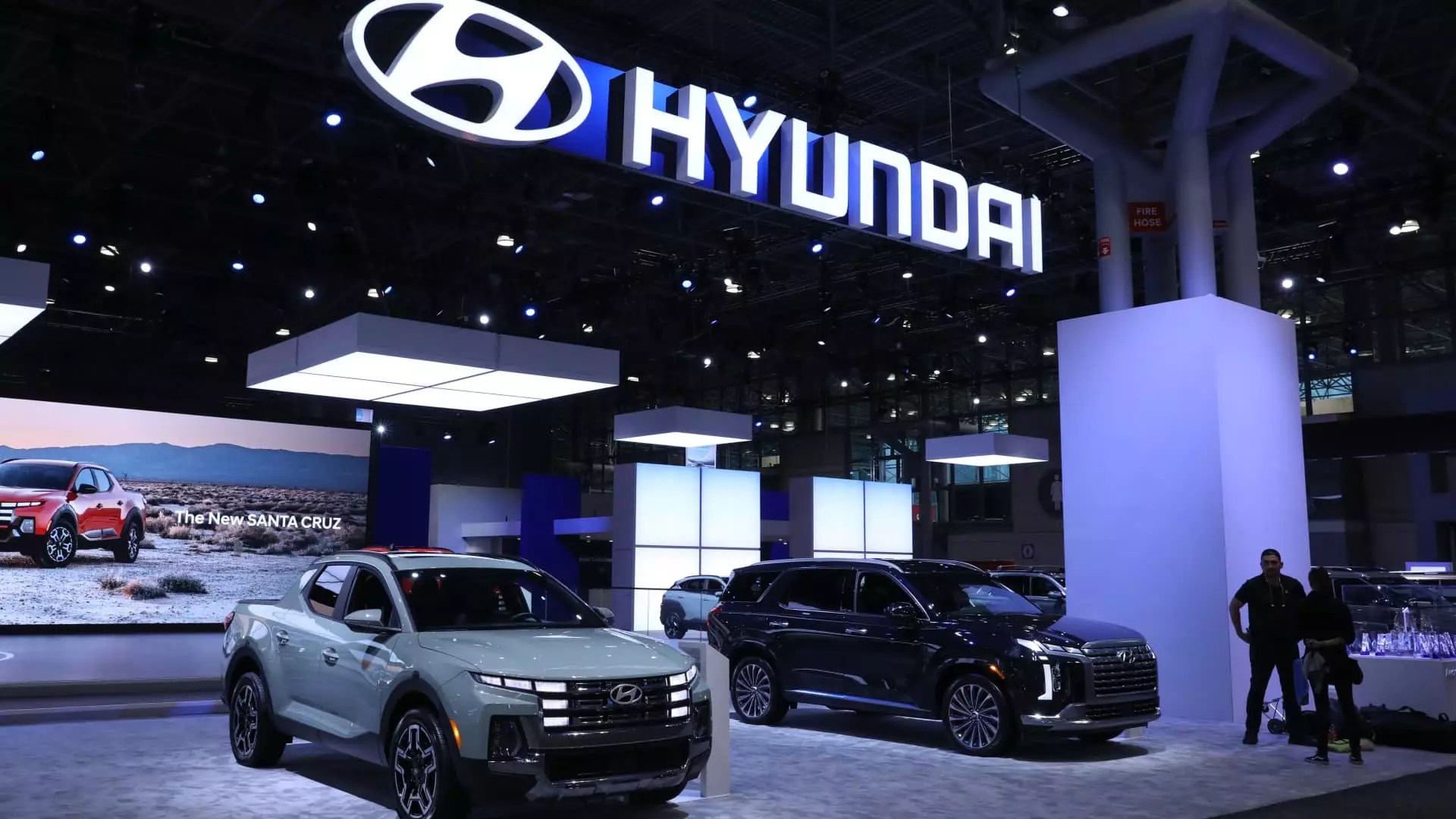In a striking move that signals a robust commitment to American manufacturing, Hyundai is poised to announce a staggering $20 billion investment in the United States. This investment, which includes the establishment of a $5 billion steel plant in Louisiana, represents not just an economic boost but a strategic pivot in the face of increasing global trade tensions. Expected to create approximately 1,500 jobs, this facility aims to produce next-generation steel that will play a pivotal role in the burgeoning electric vehicle market. Hyundai’s actions exemplify a critical shift towards onshoring that could redefine the landscape of American manufacturing.
Navigating Tariffs and Trade Dynamics
The urgency of this investment cannot be overstated, particularly as major international corporations scramble to adapt to the evolving trade climate. With looming tariff deadlines set by the Trump administration, Hyundai’s investment appears to be a preemptive strike against potential trade barriers. CEO José Muñoz’s remarks on increasing localization resonate deeply in an era where companies face the very real risk of tariffs undermining global supply chains. By intensifying their U.S. operations, Hyundai not only sidesteps these obstacles but also positions itself favorably against competitors such as Tesla, which has already established a strong foothold in the electric vehicle market.
The Broader Corporate Landscape
Hyundai’s actions are indicative of a larger trend among international conglomerates who are pivoting operations to U.S. soil. Companies like Taiwan Semiconductor Manufacturing Company and Japan’s SoftBank also recently unveiled significant investment plans aimed at mitigating tariff risks. This not only underscores the necessity of local production but also highlights the globalization of corporate strategy in the face of changing political landscapes. Each corporate move seems to be a calculated chess game, where localization serves as both a defensive measure and a path to competitive advantage.
The American Worker: A Focus on Jobs
Furthermore, this investment signifies a reintegration of American workers into the complex machinery of global supply chains. By creating approximately 1,500 jobs, Hyundai not only contributes to the labor market but also aids in revitalizing local economies. For many towns in Louisiana and Georgia where these plants will rise, this job creation could be a lifeline. The focus on American employment underscores a critical message: the next chapter in American manufacturing is not just about profitability—it’s about people.
A Shared Burden of Trade Imbalances
The dialogue surrounding tariff pressures inevitably leads to the question of trade imbalances. With South Korea facing scrutiny over its tariff policies, the narrative becomes increasingly complex. Trump’s claims of inequity between U.S. and South Korean tariff rates highlight a growing frustration within American political circles. While South Korea argues against these assertions, maintaining a relatively low effective tariff rate, it remains clear that these discussions are pivotal in shaping future economic relations.
Hyundai’s enormous investment thus stands as a bellwether for the future of both American manufacturing and international trade. As they navigate the murky waters of tariffs and trade deficits, their commitment to local production sends a strong message: an investment in America is an investment in the future.


Leave a Reply